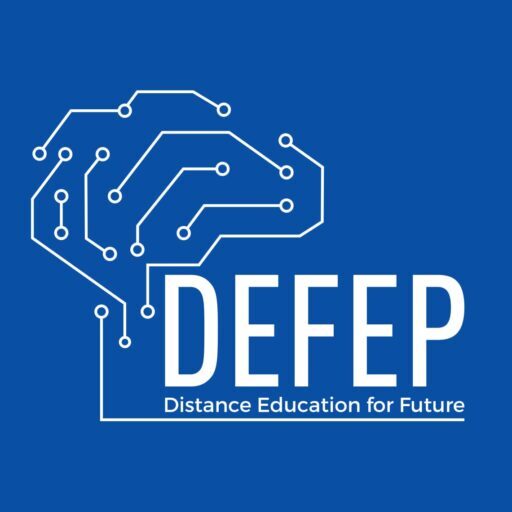ABOUT DEFEP
The DEFEP Project aims to implement a sustainable and effective system of distance education as a separate and independent form of education in the activities of the Eastern Partnership countries. A well-designed system of the distance education in the higher education institutions (HEIs) will address many important issues related to future challenges that arise in education under the behavioral, personal, ideological changes of generations and technological transformations of the labor market. At the same time, the system of the distance education in HEIs creates all the necessary conditions for the implementation of the principle of barrier-free education and creates a safe learning environment in today's realities. The existing system of the distance education in Ukrainian and Moldovan HEIs will be improved and comprehensively reorganized taking into account the experience of European partners universities. The Project is focused on the creation of institutional departments in HEIs, the development of distance teaching methods and teaching materials, and training of teaching staff. In the complex, it will contribute to the systematic design of the distance education, as a separate independent branch of education, which will develop the professional competencies and soft skills of students, by the needs of the labor market.
THE OBJECTIVES OF THE DEFEP PROJECT
- • To substantiate approaches to the implementation of the distance education as a separate independent form of learning for young people and adults to form in-demand prospective competencies, considering cognitive, behavioural and technological transformations of the individual, society and labor market.
- • To comprehensively improve the system of distance education in HEIs as a separate independent form of education and adults and strengthen its institutional, organizational, methodological, personnel, logistical and technical support.
- • To improve the professional and general competencies of scientific-pedagogical and administrative staff of HEIs to develop specific skills required for the transition to the distance education form.
- • To provide testing of the distance education as a separate independent form of learning in HEIs in individual (experimental) specialties using an appropriate electronic platform and methodological and didactic support for the formation of prospective competencies.
- • To strengthen cooperation between the HEIs of the EU and the Eastern Partnership countries that are part of the consortium and to contribute to the development of their socio-economic potential by implementing a sustainable system of the distance education to form prospective competencies considering cognitive, behavioural and technological transformations of the individual, society and the labor market.
STAGES OF THE PROJECT
- • Project management, coordination and communication - general management of project activities. The evaluation criterion is the establishment of the Coordinating Council, committees and working groups, the Advisory Committee of Employers; holding meetings and appointments according to plan; conclusion of partnership agreements, development of the Management Roadmap and communication plan, interim and final reports.
- • Research on the prerequisites for the distance learning system development. Clarification of the development trends - conducting preliminary research and collecting initial data (research results and successful practical cases) for further development of the distance education system. The evaluation criteria are a scientific-practical conference, a forum of freelancers and employers, a sociological survey of project stakeholders (students and applicants, employers, teaching and management staff), study visits to EU universities to study and adapt the experience).
- • Development of a methodology for the implementation of distance education - substantiation of methods, approaches, tools and means of pedagogy and didactics that are most acceptable for the formation of promising competencies in distance education; development of a set of proposals for its improvement.
- • Development of institutional and organizational support of the distance education system. The indicator of implementation is the development of a standard model of the organizational structure of distance education and internal regulatory and legal support for its implementation.
- • Improvement of the methodological, staffing and logistical support of the distance education system. Provides as a result the development of guides and instructions for all involved participants in the educational process; conducting training and facilitation sessions for academic and administrative staff of the Free Economic Zone; equipping experimental training laboratories; formation and filling of the electronic platform of distance education.
- • Testing the distance education system (experiment) is carried out in partner universities, where special structural subdivisions with relevant current regulations should be created; as well as recruitment and distance learning of applicants for at least one educational program of master's level.
- • Monitoring and quality assurance of the distance learning - development of distance education system management strategy; roadmap for quality assurance and integrity; quality management control plan; evaluation criteria, means of diagnosis and measurement of results; conducting periodic stakeholder surveys.
- • Project sustainability and scaling in Ukraine and Moldova. The criteria of which are the expansion of distance education, the establishment of the Association of distance learning institutions, development of proposals for higher education standards, strategies and policies in the field of higher education management.
THE EXPECTED RESULTS
- • Creation of structural subdivisions in HEIs partners of the distance education.
- • Creation of a training product for the distance education training.
- • Development and methodological support of educational courses.
- • Creation of laboratories for the distance education.
- • Pilot launch of distance learning MAs programs.

